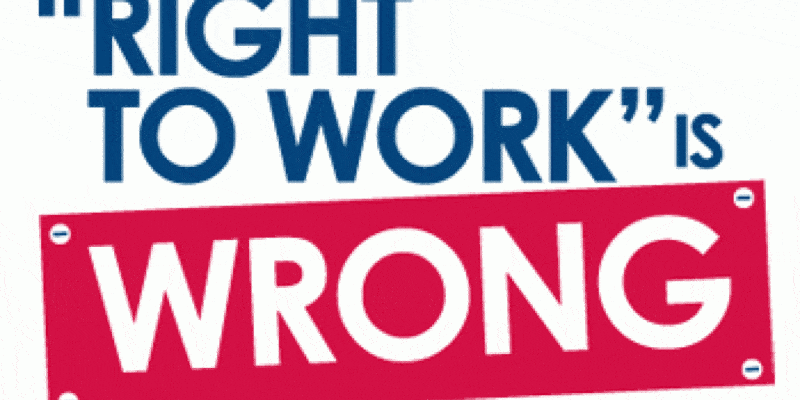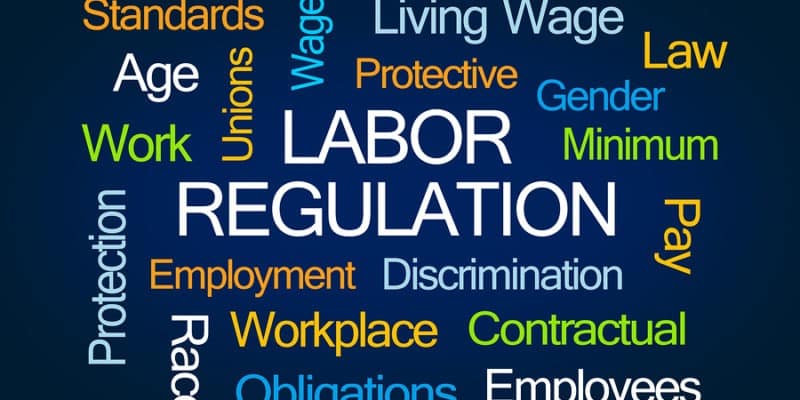By Peter Hancock – Capitol News Illinois
04/12/2019, 04:52pm
SPRINGFIELD – Gov. J.B. Pritzker on Friday signed into law a bill that prohibits local governments from enacting so-called “right-to-work” laws that are aimed at weakening the power of labor unions.
“The Collective Bargaining Freedom Act makes it abundantly clear that we have turned the page here in Illinois,” Pritzker said during a bill-signing ceremony in his statehouse office. “From the start, right-to-work was an idea cooked up to lower wages, slash benefits and hurt our working families. Right-to-work has always meant right to work for less money, and it’s wrong for Illinois.”
The first right-to-work laws in the United States were enacted in the 1940s, in the immediate aftermath of World War II, when soldiers were returning home and the U.S. economy was shifting from war production to civilian manufacturing.
Marc Dixon, a sociologist at Dartmouth College in New Hampshire, said during an August 2018 interview that different arguments have been used over the years to campaign for the laws.
The first states to adopt them were primarily in the South, he said, where the laws were used to weaken labor unions, especially the Congress of International Organizations, or CIO, which were actively supporting civil rights legislation for African-Americans.
Later, in the 1950s, he said, they were supported by people who claimed certain labor unions embraced communist sympathies or had ties to organized crime.
More recently, supporters have argued for right-to-work laws on the basis of free speech. As more and more blue-collar workers aligned with the Republican Party, supporters have argued that workers should not be forced to join unions that, broadly speaking, tend to support Democrats.
The bill that Pritzker signed Friday came in response to a local ordinance adopted in north suburban Lincolnshire in 2015. It provided that workers could not be compelled to join a labor organization as a condition of employment within the village.
A U.S. District Court judge struck down that law in 2017, ruling that federal law allows only states to regulate collective bargaining. And in March 2018, the 7th Circuit Court of Appeals upheld that decision. But other federal circuits have ruled that local governments may enact local right-to-work laws, making the issue ripe for a U.S. Supreme Court review.
Asked about that during the bill-signing, Pritzker said he is confident the new Illinois law would be upheld.
“The law as it is does not allow a state to hand this responsibility down to local communities,” he said. “This bill actually just establishes what is the law today, so I believe that that would be moot, essentially, at the Supreme Court.”








